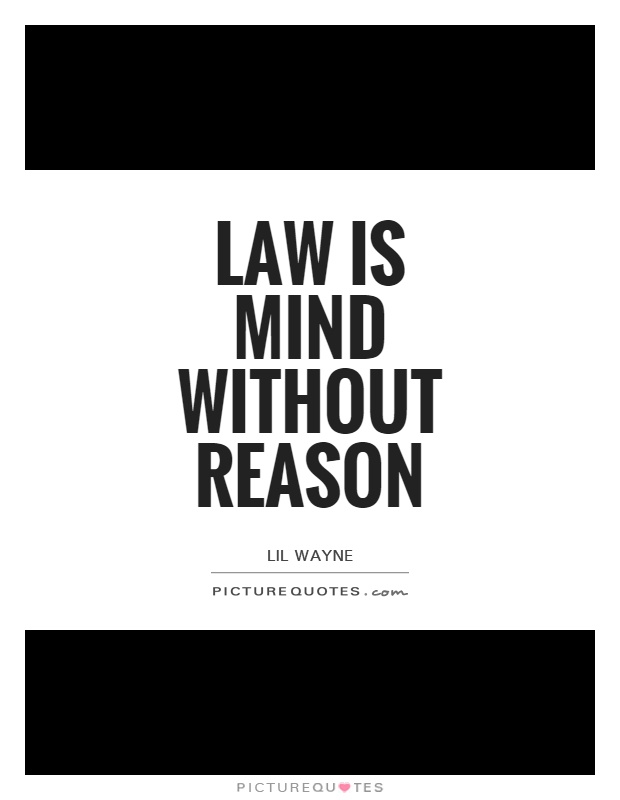Law is mind without reason

Law is mind without reason
The statement "Law is mind without reason" suggests that the law operates without logic or rationality. It implies that the legal system is arbitrary and capricious, making decisions without any basis in reason or logic. However, this interpretation of the law is overly simplistic and fails to capture the complexity and nuance of the legal system.In reality, the law is not simply a product of the mind devoid of reason. Rather, the law is a complex and multifaceted system that is based on principles of justice, fairness, and reason. While it is true that the law is ultimately a human creation, it is not arbitrary or irrational. Instead, the law is grounded in a set of principles and values that are designed to promote justice and protect the rights of individuals.
One of the key principles that underpins the legal system is the concept of reason. Reason is the ability to think logically and make decisions based on evidence and sound judgment. In the context of the law, reason plays a crucial role in the interpretation and application of legal principles. Judges and legal scholars rely on reason to analyze and interpret the law, ensuring that decisions are based on logic and evidence rather than personal bias or arbitrary whim.
Moreover, reason is also essential for the development of the law itself. Legal principles are constantly evolving and adapting to changing social norms and values. Reason allows for the careful consideration of new evidence and arguments, leading to the development of more just and equitable laws.












 Friendship Quotes
Friendship Quotes Love Quotes
Love Quotes Life Quotes
Life Quotes Funny Quotes
Funny Quotes Motivational Quotes
Motivational Quotes Inspirational Quotes
Inspirational Quotes